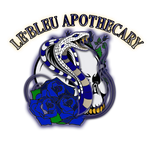Odin All Father Ritual Offering Devotional Candles
In Norse mythology, one-eyed chief of the Aesir gods; god of wisdom and war; son of Bor and the giantess Bestla; brother of Vili and Ve (or Hoenir and Lodur); married to Frigga father of Thor (Tyr) and Baldur.
Odin was called Voden, Woden, Wotan, Wuotan, or Votan in Germanic and Anglo-Saxon mythologies. The Prose Edda describes Odin as the god who “governs all things.” Odin was the wisest of the gods, and all the other deities came to him for advice. He drew his wisdom from the well of the giant Mimir. Odin gave up one of his eyes to Mimir as a pawn to gain wisdom and was sometimes portrayed as a one-eyed old man. Occasionally, however, he appears as a heroic man with a spear and shield. In Valhalla and Vingolf Odin gave elaborate banquets, but he only drank wine, which was all he needed to sustain himself. The meat served to the god was given to his wolves, Freki and Geri (the greedy one).
Odin had two ravens called Hugin (thought) and Munin (mind) that perched on his shoulders. Every day they flew forth throughout the universe and brought news home to the god. Odin was often called God of Ravens. From his throne Hlithskjalf in Valaskkalf, the god could see everything pass before him. His horse was Sleipnir, an eight-footed animal; his spear was called Gungnir and could hit anything aimed at; and on his arm he wore a precious ring, Draupner, from which dropped eight other rings every nine nights. It is believed that part of Odin’s worship consisted of human sacrifices. It was believed that the god once hung on a gallows, wounded with the thrust of a spear, and thus gained wisdom. Some of his worshippers were hung on gallows in the same manner.
Odin was called God of Hanged Men or Lord of the Gallows because of this. He would tell one of his ravens to fly to the hanged man, or he would go himself to talk to the man. An 11th-century account by Adam of Bremen tells of a sacrificial grove near a temple at Uppsala where human bodies hung from the branches of the sacred trees. Among the many kennings for the god are Ygg (the awful), Gagnrad (he who determines victories), Herjan (god of battles), Veratyr (lord of men), Har (the high one), Jafnhar (even as high), Thridi (third), Bileyg (one with evasive eyes), Baleyg (one with flaming eyes), Bolverk (the worker of misfortune, applied to Odin’s role in granting or not granting victory to his followers), Sigfather (the father of battle or of victory), Gaut (the creator), and Tveggi (the twofold).
The herbs used in this mixture are blend of Offerings To Odin..
Each 8oz candle is FIXED and charged with Magickal intentions and oils, herbs, and crystal chips for this specific deity.




